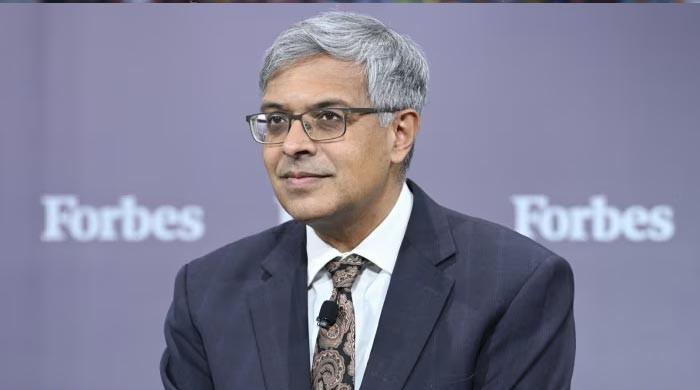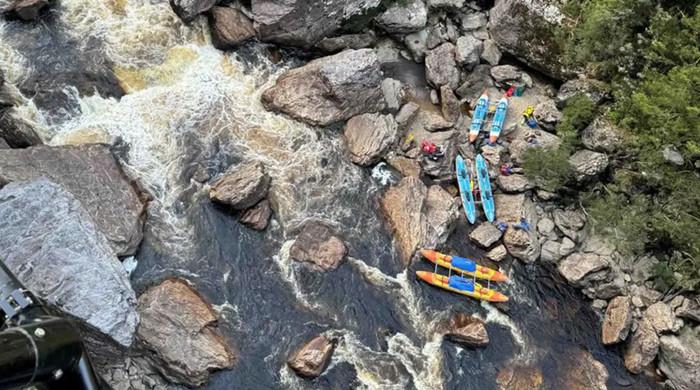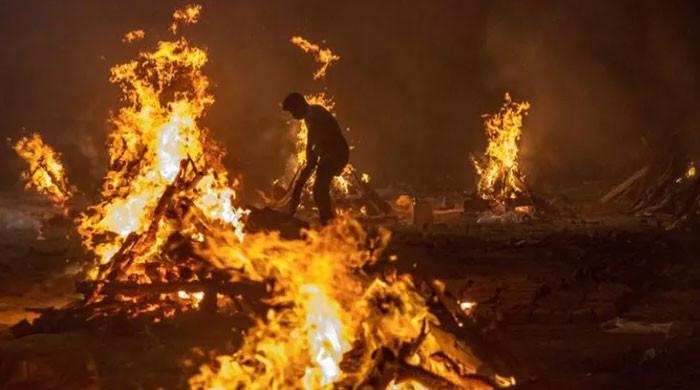IS fears grow in Pakistan and Afghanistan
ISLAMABAD: The Islamic State organisation is starting to attract the attention of radicals in Pakistan and Afghanistan.Far from the militants´ self-proclaimed "caliphate" in Iraq and Syria, the...
November 02, 2014
Far from the militants´ self-proclaimed "caliphate" in Iraq and Syria, the name of IS has cropped up several times in jihadi circles in recent weeks in Pakistan and Afghanistan.
Leaflets calling for support for IS were seen in parts of northwest Pakistan, and at least five Pakistani Taliban commanders and three lesser cadres from the Afghan Taliban have pledged their support.
Pro-IS slogans have appeared on walls in several cities in both countries and in Kabul University, where a number of students were arrested.
Militant, security and official sources questioned by AFP in recent weeks say these are local, individual initiatives, and at this stage IS has not established a presence in the region.
But the success of IS in the Middle East is unsettling many of those charged with keeping a lid on Afghanistan and Pakistan´s myriad extremist groups.
"ISIS is becoming the major inspiration force for both violent and non-violent religious groups in the region," Pakistani security analyst Amir Rana told AFP.
So far the Taliban and Al-Qaeda´s new South Asia wing have steered clear of criticising IS, maintaining a united front against "Western aggression".
US officials say the group is generating tens of millions of dollars a month from black market oil sales, ransoms and extortion.
This financial heft is proving a big draw -- including for the five Pakistani Taliban commanders who announced their support for the IS group.
"The splinter groups are facing financial crisis, so they are contacting Daesh," a senior militant told AFP. Daesh is another name for IS.
To spread in the region, IS must also eat away at the authority of the state -- but, unlike Iraq and Syria, Pakistani state structures look solid and are supported by a powerful army.
Afghanistan, much more fragile, is more worrying -- particularly Kunar and Nuristan, mountainous provinces on the Pakistani border.
"The authorities´ fear is that IS will join up with the TTP and other extremist groups and from there spread on both sides of the border," said analyst Rana.
Several sources say that in Kunar there is at least one camp training hundreds of fighters sympathetic to IS.
Away from the camps, there is a danger that the IS jihadists could attract more and more young Afghans and Pakistanis through their propaganda on Facebook and Twitter.
"People here face problems with the lack of justice, the corruption and the inefficiency of the state, and therefore they need a counter-narrative, and ISIS provides one with religious content," said Tahirul Ashrafi, head of the Pakistan´s Ulema Council.











